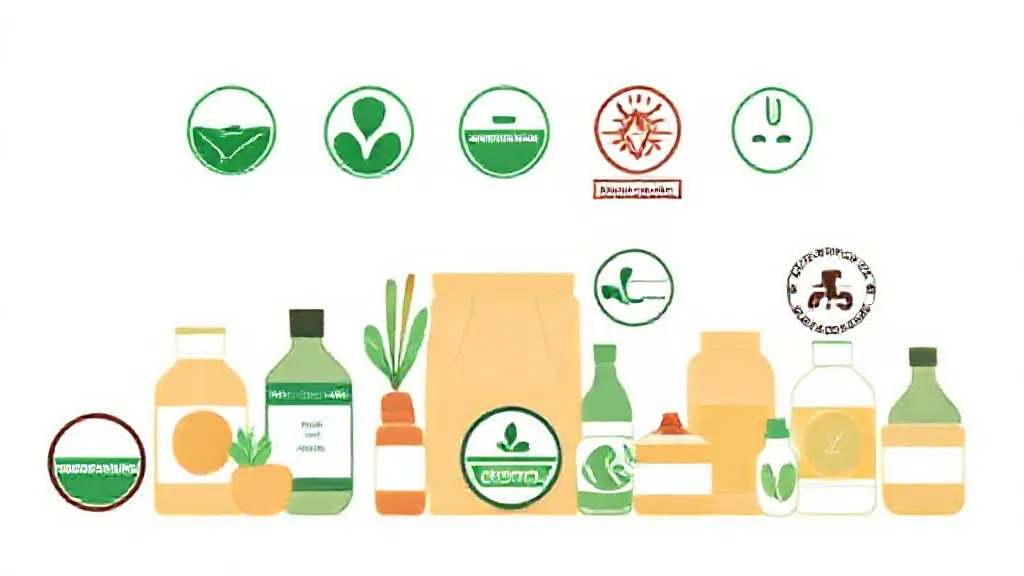In recent years, green certifications have emerged as a crucial factor influencing consumer choices, particularly in an era where environmental concerns are at the forefront of public consciousness. These certifications, often represented by eco-labels on products, signify that a product meets specific environmental standards, thereby appealing to consumers who prioritize sustainability in their purchasing decisions. This article delves into the impact of green certifications on consumer behavior, examining their effectiveness, the psychology behind eco-labeling, and the broader implications for businesses and the environment.
The Rise of Eco-Labels and Consumer Awareness
The rise of eco-labels can be traced back to growing awareness of environmental issues, such as climate change, pollution, and resource depletion. As consumers become more educated about the ecological footprint of their choices, they increasingly seek products that align with their values. According to a study by Nielsen, nearly 66% of global consumers are willing to pay more for sustainable brands.
This trend has prompted companies to pursue green certifications as a means of differentiating their products in a crowded marketplace. Certifications like Energy Star, USDA Organic, and Fair Trade not only provide assurance of a product's environmental benefits but also enhance its marketability.
The Psychology of Eco-Conscious Consumers
Understanding the psychology behind eco-conscious consumers is essential for grasping the impact of green certifications.
Many consumers experience cognitive dissonance when their purchasing decisions conflict with their environmental values. Green certifications help alleviate this dissonance by providing a tangible way for consumers to support sustainable practices. The presence of an eco-label can serve as a heuristic, simplifying the decision-making process and allowing consumers to feel good about their purchases.
This psychological reassurance can significantly influence buying behavior, making consumers more likely to choose certified products over non-certified alternatives.
The Effectiveness of Green Certifications
The effectiveness of green certifications in influencing consumer choices can vary based on several factors, including the credibility of the certification body, the visibility of the label, and the consumer's existing knowledge of environmental issues. Certifications that are well-established and recognized tend to have a more substantial impact on purchasing decisions.
For example, the Forest Stewardship Council (FSC) label is widely respected in the wood and paper industries, leading consumers to prefer products bearing this certification. Conversely, lesser-known certifications may not have the same level of influence, highlighting the importance of consumer education and awareness.
Challenges and Criticisms of Green Certifications
Despite their positive impact, green certifications are not without challenges and criticisms.
Some argue that the proliferation of eco-labels can lead to confusion among consumers, as they may struggle to differentiate between certifications and their respective standards. Additionally, concerns about "greenwashing," where companies falsely claim to be environmentally friendly, can undermine consumer trust in eco-labels. To combat these issues, transparency and clear communication from certification bodies are essential.
Consumers must be educated about what each certification means and how it is achieved.
The Role of Social Media and Advocacy Groups
Social media has played a pivotal role in amplifying the influence of green certifications on consumer choices. Platforms like Instagram and Facebook allow consumers to share their experiences with sustainable products, creating a community of eco-conscious individuals who advocate for green certifications.
Advocacy groups also contribute by promoting awareness of sustainable practices and holding companies accountable for their environmental claims. This collective effort can significantly impact consumer behavior, as individuals are more likely to trust recommendations from peers and trusted organizations.
The Future of Green Certifications
Looking ahead, the future of green certifications appears promising as consumers continue to prioritize sustainability in their purchasing decisions.
As technology advances, we may see the development of more sophisticated certification systems that utilize blockchain or other innovative methods to ensure transparency and traceability in supply chains. Additionally, as more companies commit to sustainable practices, the landscape of green certifications will likely evolve, with new standards emerging to address the changing needs of the market.
The Economic Impact of Green Certifications
The economic impact of green certifications cannot be overlooked.
Companies that invest in sustainable practices and obtain green certifications often experience enhanced brand loyalty and customer retention. This, in turn, can lead to increased sales and profitability. Furthermore, as consumer demand for sustainable products grows, businesses that fail to adapt may find themselves at a competitive disadvantage.
The shift toward sustainability is not merely a trend; it represents a fundamental change in consumer expectations, and companies must respond accordingly.
Conclusion: The Importance of Informed Choices
In conclusion, green certifications play a significant role in shaping consumer choices in today's environmentally conscious marketplace. By providing assurance of a product's sustainability, these certifications empower consumers to make informed decisions that align with their values.
However, for green certifications to be truly effective, it is essential for consumers to remain educated about the various labels and their meanings. As awareness continues to grow, the impact of green certifications on consumer behavior will likely strengthen, driving positive change in both the marketplace and the environment.
